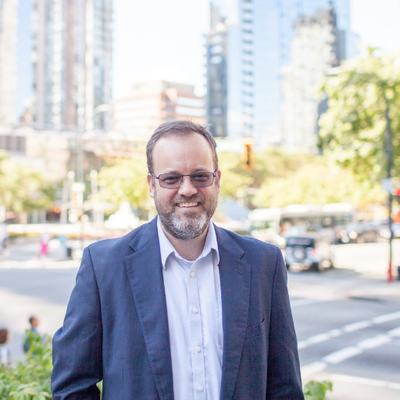Commentary on Psalm 122
Advent is a delightfully mixed message.1 It is a season of judgment: John the Baptist announces fire and then Jesus brings it.
And yet it is also a season of joy. Psalm 122 is then the perfect Advent psalm, for it is full of gladness (Psalm 122:1). It is a delight to come up into the city of David and to rejoice there. A sermon on this psalm should be full of delight. Even, or especially, with a hint of judgment (verse 5).
This psalm has often served as a textbook example for the medieval church’s fourfold approach to biblical interpretation. What is Jerusalem? It is, first and most obviously, a city in Palestine. It is also, allegorically speaking, the church (Galatians 4:26). It is also the faithful soul. And it is, finally, the city of God, coming down out of heaven from God (Revelation 21:2).
Modern approaches to the Bible make the odd assumption that texts have only one referent—the one in the author’s head when pen was first put to paper. The actual referents of a text hinge more on questions like these: What does God mean in this passage? What does the gathered community need to hear from these words? How can the good news lodge in my soul and make it a roomier place for God and the neighbor? How do we realign our longings aright for the new creation God is birthing, right in the midst of the old?
Jerusalem, a city in Palestine
First, an actual city. You can go to Jerusalem right now, more easily than ever in human history. Walking around the old city one night, I noticed how tired my calves were. I was going up—literally—and uphill hurts! Pilgrims traipsed up and down and back up for days, and then roared with delight when they first glimpsed the city, when they came within the safety of its gates, when they entered the place where they could attain justice there like nowhere else.
This psalm gives a literal directive like few psalms do: Pray for Jerusalem. Right now. Stop what you’re doing and pray for its peace, for on its peace hangs the peace of the world.
The specificity of Jerusalem demonstrates the biblical teaching of the scandal of particularity. Human notions of fairness, including many biblical ones, assume God shows no favorites. But the scandal of particularity says that God lives at One Temple Way in Jerusalem. Abraham Joshua Heschel wrote of the city, “Here the trees praise, the streets say grace, and my steps give thanks. The way of Jerusalem is a way of exaltation.”2
Jerusalem, the church
Jerusalem is also the church. Ancient Christians saw the church in the ascent of the gentiles up Mount Zion, which Israel’s Scripture prophesied would come at the end of the world (Isaiah 2:1–5). God’s deliverance of Israel would be so astounding that even gentiles would notice and join in with the tribes going up for worship (Psalm 122:4).
Delight is contagious. St. Augustine asked his hearers to “call to mind a scene familiar to you.” Folks assemble at a holy place and “incite one another” so that we “catch fire with enthusiasm and all the separate flames unite.”3 The church is a people alight for God, merged into a single soul.
Jerusalem, the faithful soul
Soul talk has not fared overly well in modernity. We have been right to emphasize the bodily, the this-worldly, the corporality of Israel, Jesus, and church. And yet these passages have to mean something spiritually. Preachers know this—we can’t leave the cookies on the high shelf. We have to say why the stories matter for the lives of those gathered for good news.
St. John Chrysostom did so when he pondered the fact that Israel wrote and then treasured this psalm from exile—that is, from a place where she was physically incapable of going up to Jerusalem. “This is the way God generally does things: when we do not appreciate the good things we have, God knocks them from our hands.”4
This is not the only spiritual interpretation of the psalm, of course; there are literally countless more. As a preacher, you have to deliver one or more of them—your listeners are hungry, and you’re tasked to feed them (Luke 11:11–12).
Jerusalem, the city of God
Fourth and finally, the city God is bringing: Christians pray for it regularly in Jesus’ prayer. He had a hard time in his father David’s city. He went up regularly, as commanded here and elsewhere. His parents should have known he was not lost, but was teaching in its temple (Luke 2:41–51). Yet the city evokes his tears: It kills the prophets and would eventually kill him (Luke 13:31–35).
Jerusalem is the navel of the world in Jewish imagination, the umbilical cord by which God feeds the cosmos. In this age, that place of life has often been a place of death. Just have a look at the news. Prayer shaped by this psalm asks that the place meant for life, that we distort into a place of death, would become a site of resurrection. Let its walls be peace, its towers be security, its multiple generations be bound together, its good be ours and also the whole world’s. Prayer seeks to align our desire with God’s, first for Israel’s blessing and then for all the world’s.
Advent is a forward-looking time. Just as Christ came in fulfillment of God’s long-standing promises, so too he will come again and consummate those promises. The throbbing desire pulsing through these words of the ancient psalmist should pulse anew through our church’s life together as we await the babe in Bethlehem, the king coming on the clouds.
Notes
- Commentary previously published on this website for December 1, 2019.
- Quoted in Stephen Breck Reid, Psalms for Preaching and Worship, ed. Van Harn and Strawn (Grand Rapids: Eerdmans, 2009), 316–318.
- Augustine, Expositions on the Psalms, vol. 6, trans. Maria Boulding (Hyde Park, NY: New City Press, 2004), 14.
- John Chrysostom, Commentary on the Psalms, vol 2, trans. Robert Charles Hill (Brookline, MA: Holy Cross Orthodox Press, 1998), 147.



November 30, 2025